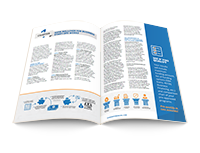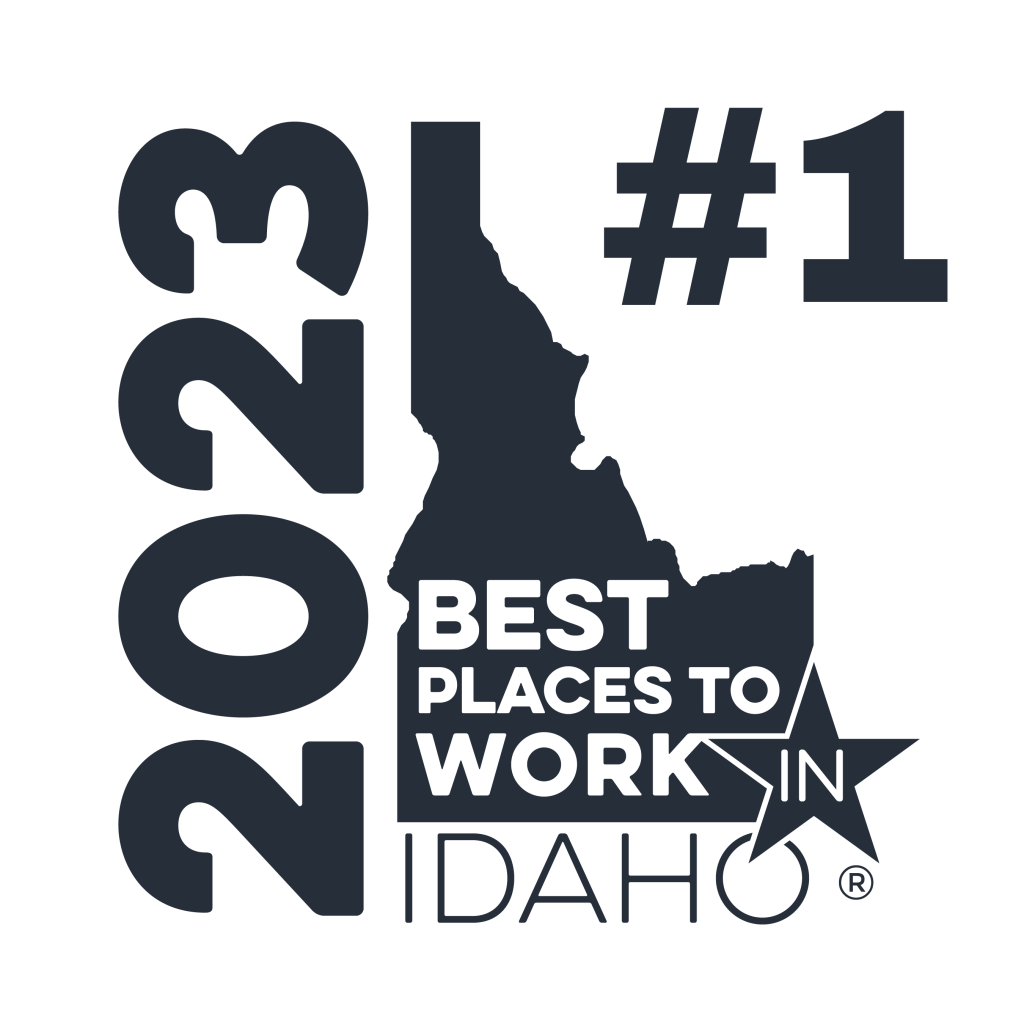
401(k) Financing: Rollovers as Business Startups (ROBS)
With ROBS, you can tap into your retirement funds tax- and penalty-free to finance your business. It’s not too good to be true! With this in-depth Complete Guide to Rollovers as Business Startups, you’ll learn everything there is to know about ROBS.
Traditional small business funding isn’t always the right answer. With bank loans, you might have to worry about getting approved, making repayments, and having high interest rates. But Rollovers as Business Startups (ROBS), also known as 401(k) business financing, gives you the option to finance your business without needing a great credit score or to risk your home as collateral. It’s an especially great option if you’re a first-time business owner.
Why Should I Choose Rollovers as Business Startups?
All too often, aspiring small business owners turn only to the funding sources they know. A recent Guidant survey of entrepreneurs revealed that over 50% used a personal checking or savings account to fund their business. While this is an excellent option if you have enough cash on hand to get started, most aspiring small business owners are out of luck.
The next step most entrepreneurs take is to look for a bank loan. After all, if you got your mortgage from a bank — why should a business loan be any different? SBA loans can be an excellent source of funding, but only about 25% of applicants get approved. If you’re one of the lucky recipients, you’ll still need a 20 to 30% down payment and to collateralize your home. If you’re denied an SBA loan, can’t make the down payment, or don’t want to risk your home, your business funding options are limited.
There are other financing options with less attractive terms than an SBA loan. But those come with their own requirements and the burden of starting your business under a pile of debt.
There’s another option that allows you to leverage the pretax retirement funds you’ve been building since entering the workforce. Your 401(k) or IRA is an untapped source of cash — and the basis for 401(k) business financing. This financing solution is Rollovers as Business Startups (ROBS), a debt-free option that thousands of small business owners use to make their business dreams a reality.
What will be covered in this guide?
In this complete guide, we’ll walk through everything you need to know about Rollovers for Business Startups:
- How the ROBS process works.
- The history and legality of ROBS.
- The advantages of ROBS and how it compares to other funding methods.
- The truth behind common misconceptions.
- What to look for in a quality ROBS provider.
- Annual requirements and upkeep.
- Dos and don’ts of the structure.
- How ROBS can help support eligible employees.
- How to explain ROBS to your CPA or tax attorney.
- What else you can do with ROBS after your initial cash infusion.
- How to exit the ROBS structure when you’re ready to sell your business.
How much of this guide do I need to read?
If you’re serious about funding a business or franchise without going into debt or putting your home on the line, we recommend reading this guide from start to finish. Each chapter presents a thorough view of an element of Rollovers as Business Startups and proceeds in a linear order to build your knowledge before moving on to the next topic.
By the end of this guide, you’ll know every detail there is to know about ROBS, the business financing solution that lets you start your business debt-free and cash rich. Let’s get started!
Too busy to read the guide? Here are some common questions:
How do ROBS work?
Rollovers as Business Startups works in five steps:
- Create a new C corporation, a common business structure.
- Set up a company 401(k) plan for your new C corporation.
- Roll your existing retirement funds into the new company 401(k) retirement plan.
- The company 401(k) plan buys your C corporation’s stock.
- The funds from the stock purchase can be used to operate your business.
Keep reading to get more details, or download our full ROBS guide!
Are ROBS legitimate?
Yes! In 1974, Congress enacted the Employee Retirement Income Securities Act (ERISA). ERISA, in conjunction with sections of the Internal Revenue Code, provides workers with another business funding vehicle for building retirement assets. That’s ROBS!
That said, there is definitely a “right” and a “wrong” way of doing ROBS. The IRS maintains strict compliance requirements, so be sure to work with a ROBS provider that has rigorous compliance standards.
Read more about the legality of ROBS here.
What businesses can be started with ROBS?
Fortunately, ROBS lends itself to almost every kind of business, with very few exceptions. Though the exceptions to the types of businesses ROBS can fund are few, they have a crucial impact on keeping your ROBS transaction tax-free. Here is a checklist to ensure your proposed business meets these standards:
The Business Must be Federally Legal. Any business funded through ROBS must be federally legal and based in the U.S. Pot shops (even in states where it’s permitted) are not eligible for ROBS because they are not federally legal. In addition, businesses operating outside of the United States (even if the owner resides in the U.S.) are also not eligible.
The Business Must Be an Active Operating Company. An operating company is defined as an entity that is primarily engaged in the sale or exchange of a product or service instead of simply the investment of capital. For most business owners, this is a non-issue. There are times, however, when individuals are looking to invest in a hobby. Hobbies are not active businesses and thus are not eligible for this method. Nor can a ROBS arrangement be used for a business for which the primary activity is deemed to be the investment of capital.
The Business Must be Owned by a C Corporation. The ROBS process requires you to create a new C corporation. The parent company must be a C corporation. You’re allowed to operate the business itself as an LLC or sole proprietorship as long as the parent company is a C corporation. In other words, for tax purposes, all finances flow through the C corporation.
Learn more about the ROBS process in Chapter 6.
You Must be a Bona Fide Employee of the Business. You must be a bona fide employee of your business — not solely a passive owner or investor. A common misstep here is when someone wants to use his or her retirement funds to buy a business for a family member or friend. With ROBS, you can’t purchase the business then step away.
What is a ROBS "rollover?"
Rollovers as Business Startups (ROBS) is a business financing solution that uses retirement savings to fund a new or existing business without withdrawal or tax penalties. “Rollover” refers to the process of moving retirement funds from one 401(k) account to the new company’s 401(k) account, and then from the company’s 401(k) account to the company’s checking account. It’s one of the most important parts of the setup process.
How do I set up a ROBS?
Because ROBS is a complex transaction, it should only be done with the assistance of an experienced ROBS provider. Your provider will help you remain compliant with the IRS and DOL while setting up a new business property, the necessary accounts, and assisting with the actual rollover.
For more information on choosing a ROBS provider, head to Chapter 5: How to Pick the Right ROBS Provider.
How do you unwind a ROBS transaction?
The method you use to unwind your ROBS transaction depends on why you are exiting your business. It usually goes one of two ways: An insolvency termination, or a stock buyback. In either case, you’ll need to contact your plan administrator, outside legal counsel, and CPA. For more details, check out Chapter 11: Exiting the ROBS structure.
Is this the same thing as a ROBS loan?
While you may have heard the phrase “ROBS loan,” Rollovers as Business Startups is NOT a loan. In fact, there is no such thing as a “robs loan.” If a consultant uses that term, you may need to look for a better-informed consultant!
Is it "Rollovers as Business Startups" or "Rollovers for Business Start-ups?"
As of 2022, the IRS prefers “Rollovers as Business Startups.”
Generally, which one is preferred depends on the provider. We try to align ourselves with the IRS, and began the migration toward their usage in 2021. You may see alternative uses here and there.
Pre-Qualify Today!



















